DAERA finalising support for NI
pig sector
A support package is being finalised by DAERA for NI pig producers who are financially affected by delays at pork processing factories.
A department spokesperson confirmed to the Irish Farmers Journal that approval from the NI Executive was not needed for the package to be signed off. “The absence of an Executive would not delay the rollout of any potential support scheme for pig producers,” the DAERA spokesperson said.
In the Republic of Ireland, a €7m package for pig producers was announced by the Government in late February. The scheme will involve a flat rate payment of up to €20,000 per farmer who slaughters more than 200 pigs each year.
However, it is understood that the support package in NI will be more targeted and could be directed at producers who were affected by processing delays due to overweight pigs and additional kill charges.
Herd restrictions for retained BVD calves
Plans are being progressed within DAERA for movement restrictions to be imposed on herds that retain BVD-positive cattle, an industry organisation has said.
Animal Health and Welfare NI (AHWNI), the body that administers the BVD eradication scheme, said Agriculture Minister Edwin Poots made the commitment in a letter to industry representatives.
“Work is ongoing by the Department to progress the legislation as early as possible in the next mandate. It is understood that the development will take until at least the end of 2022,” AHWNI said in a statement.
The body also wants other measures to be rolled out to further help with BVD eradication.
This includes issuing letters to farmers to alert them of the BVD risk to their herd if someone in their local area has not culled a calf that is persistently infected with BVD.
A more recent proposal from AHWNI is for a system to be introduced which indicates the BVD status of individual herds.
Opportunities still
lie ahead claims agri-food consultant
The war in Ukraine has created really unsettled times for farming, but longer term there are still many reasons to be positive about the industry, agri-food business consultant Dr Jonathan Birnie has said.
Addressing an Ulster Farmers’ Union meeting in Dungannon on Tuesday, Birnie predicted that rising input costs will lead to “really strong” food price inflation over the next couple of years.
With input costs and output prices both up, it might be that margins in food production remain squeezed.
Looking beyond the immediate pressures, he said that the major UK retailers will remain the main outlet for NI food, but with new opportunities emerging, particularly in Asian markets.
One of the main impacts of climate change could actually be that the growing season in Ireland is extended, while other parts of the world will be significantly hit, including countries in Asia. “High-value Asian markets – in my opinion, in 20 years’ time, that is where the growth will be,” he suggested.
In the meantime, he said that farmers must tackle local environmental challenges and learn new skills to keep up-to-date with more automation and data management. However, for those who have been keen to talk down the industry in recent months, he pointed out that food production, unlike any other industry, transfers wealth right across NI.
“I am ultimately optimistic about the future,” he concluded.
New test to confirm TB in Britain
A Polymerase Chain Reaction (PCR) test is to be routinely used in Britain from 30 March 2022 to confirm TB in cattle with suspect lesions at slaughter.
Completed in a laboratory setting, the main benefit of the PCR test is that it can deliver a result typically around three weeks, compared to the current practice of taking a sample for a microbiological culture, which can take up to 22 weeks.
UFU launch election manifesto
The Ulster Farmers’ Union (UFU) has distributed a manifesto to all political parties in NI ahead of the May Assembly elections.
“We have outlined key strategic actions on a number of important policy areas including climate change, the Future Agriculture Policy, NI Protocol, UK trade deals, labour shortages and bovine TB, as well as other sectoral specific issues that need to be addressed urgently,” confirmed UFU President Victor Chestnutt.
Deadline nears for veterinary software funding
Veterinary practices in NI who want to avail of funding to install software that simplifies the reporting of antibiotic use on farms have until the 31 March 2022 to apply.
The funding is available via the Livestock and Meat Commission (LMC) to utilise the Strategic Antimicrobial use in dairy, beef and lamb Production (STAMP) benchmarking tool.
The tool was developed in partnership with the STAMP project partners and Farmvet Systems and can be used to monitor antibiotic prescription use at farm level.
“LMC has funded the installation cost of this software in several local veterinary practices and we are pleased that feedback on the software has been very positive,” said LMC industry development manager, Colin Smith.
He also suggested that use of the tool could become eventually compulsory for members of the NI beef and lamb farm quality assurance scheme.
For more information on the LMC funding visit www.vetimpress.com/stampni
ABC council launch agriculture strategy
The first agriculture strategy produced by a local authority in NI has been published by Armagh City, Banbridge and Craigavon (ABC) Borough Council.
The document, written by Co Tyrone based Birnie Consultancy, includes 10 recommendations for the council to best support the agri-food sector into the future.
Among those recommendations is that the council should expand its successful Food Heartland brand to incorporate agriculture, while also developing a marketing strategy to raise awareness of the brand outside the borough.
DAERA finalising support for NI
pig sector
A support package is being finalised by DAERA for NI pig producers who are financially affected by delays at pork processing factories.
A department spokesperson confirmed to the Irish Farmers Journal that approval from the NI Executive was not needed for the package to be signed off. “The absence of an Executive would not delay the rollout of any potential support scheme for pig producers,” the DAERA spokesperson said.
In the Republic of Ireland, a €7m package for pig producers was announced by the Government in late February. The scheme will involve a flat rate payment of up to €20,000 per farmer who slaughters more than 200 pigs each year.
However, it is understood that the support package in NI will be more targeted and could be directed at producers who were affected by processing delays due to overweight pigs and additional kill charges.
Herd restrictions for retained BVD calves
Plans are being progressed within DAERA for movement restrictions to be imposed on herds that retain BVD-positive cattle, an industry organisation has said.
Animal Health and Welfare NI (AHWNI), the body that administers the BVD eradication scheme, said Agriculture Minister Edwin Poots made the commitment in a letter to industry representatives.
“Work is ongoing by the Department to progress the legislation as early as possible in the next mandate. It is understood that the development will take until at least the end of 2022,” AHWNI said in a statement.
The body also wants other measures to be rolled out to further help with BVD eradication.
This includes issuing letters to farmers to alert them of the BVD risk to their herd if someone in their local area has not culled a calf that is persistently infected with BVD.
A more recent proposal from AHWNI is for a system to be introduced which indicates the BVD status of individual herds.
Opportunities still
lie ahead claims agri-food consultant
The war in Ukraine has created really unsettled times for farming, but longer term there are still many reasons to be positive about the industry, agri-food business consultant Dr Jonathan Birnie has said.
Addressing an Ulster Farmers’ Union meeting in Dungannon on Tuesday, Birnie predicted that rising input costs will lead to “really strong” food price inflation over the next couple of years.
With input costs and output prices both up, it might be that margins in food production remain squeezed.
Looking beyond the immediate pressures, he said that the major UK retailers will remain the main outlet for NI food, but with new opportunities emerging, particularly in Asian markets.
One of the main impacts of climate change could actually be that the growing season in Ireland is extended, while other parts of the world will be significantly hit, including countries in Asia. “High-value Asian markets – in my opinion, in 20 years’ time, that is where the growth will be,” he suggested.
In the meantime, he said that farmers must tackle local environmental challenges and learn new skills to keep up-to-date with more automation and data management. However, for those who have been keen to talk down the industry in recent months, he pointed out that food production, unlike any other industry, transfers wealth right across NI.
“I am ultimately optimistic about the future,” he concluded.
New test to confirm TB in Britain
A Polymerase Chain Reaction (PCR) test is to be routinely used in Britain from 30 March 2022 to confirm TB in cattle with suspect lesions at slaughter.
Completed in a laboratory setting, the main benefit of the PCR test is that it can deliver a result typically around three weeks, compared to the current practice of taking a sample for a microbiological culture, which can take up to 22 weeks.
UFU launch election manifesto
The Ulster Farmers’ Union (UFU) has distributed a manifesto to all political parties in NI ahead of the May Assembly elections.
“We have outlined key strategic actions on a number of important policy areas including climate change, the Future Agriculture Policy, NI Protocol, UK trade deals, labour shortages and bovine TB, as well as other sectoral specific issues that need to be addressed urgently,” confirmed UFU President Victor Chestnutt.
Deadline nears for veterinary software funding
Veterinary practices in NI who want to avail of funding to install software that simplifies the reporting of antibiotic use on farms have until the 31 March 2022 to apply.
The funding is available via the Livestock and Meat Commission (LMC) to utilise the Strategic Antimicrobial use in dairy, beef and lamb Production (STAMP) benchmarking tool.
The tool was developed in partnership with the STAMP project partners and Farmvet Systems and can be used to monitor antibiotic prescription use at farm level.
“LMC has funded the installation cost of this software in several local veterinary practices and we are pleased that feedback on the software has been very positive,” said LMC industry development manager, Colin Smith.
He also suggested that use of the tool could become eventually compulsory for members of the NI beef and lamb farm quality assurance scheme.
For more information on the LMC funding visit www.vetimpress.com/stampni
ABC council launch agriculture strategy
The first agriculture strategy produced by a local authority in NI has been published by Armagh City, Banbridge and Craigavon (ABC) Borough Council.
The document, written by Co Tyrone based Birnie Consultancy, includes 10 recommendations for the council to best support the agri-food sector into the future.
Among those recommendations is that the council should expand its successful Food Heartland brand to incorporate agriculture, while also developing a marketing strategy to raise awareness of the brand outside the borough.



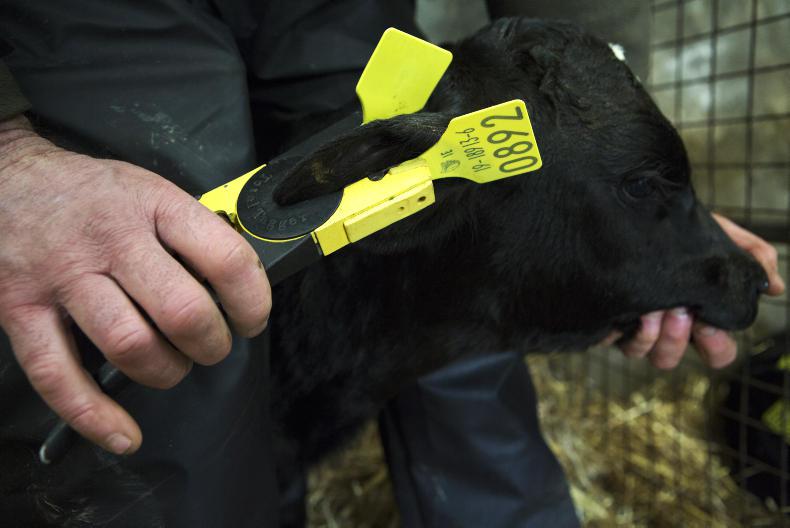

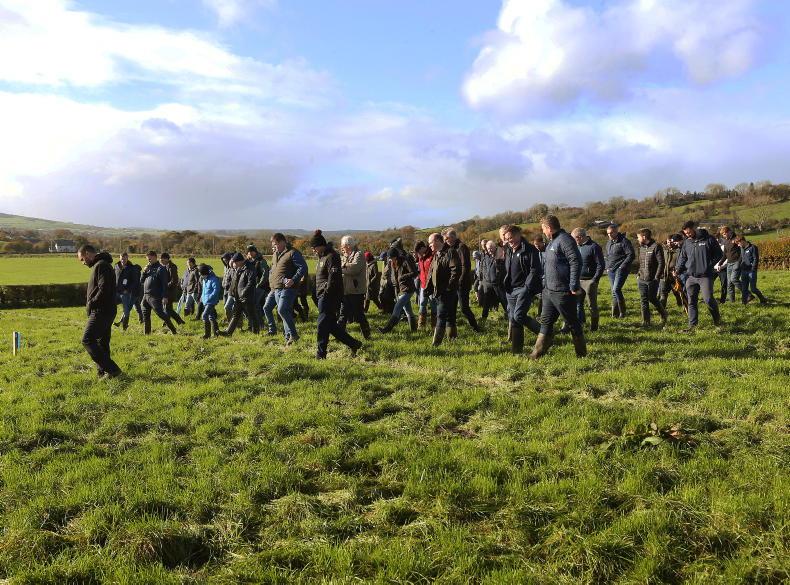
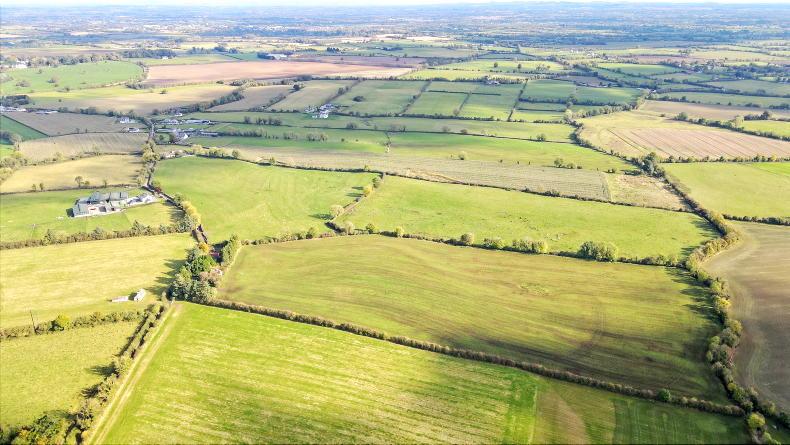
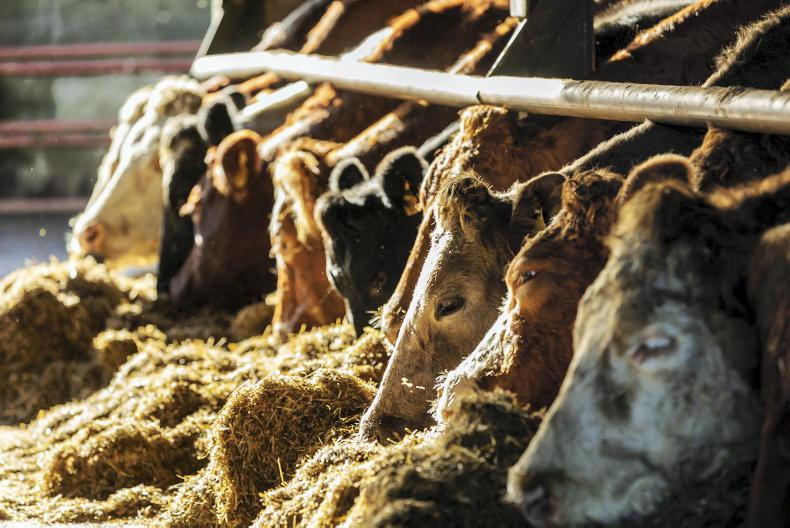
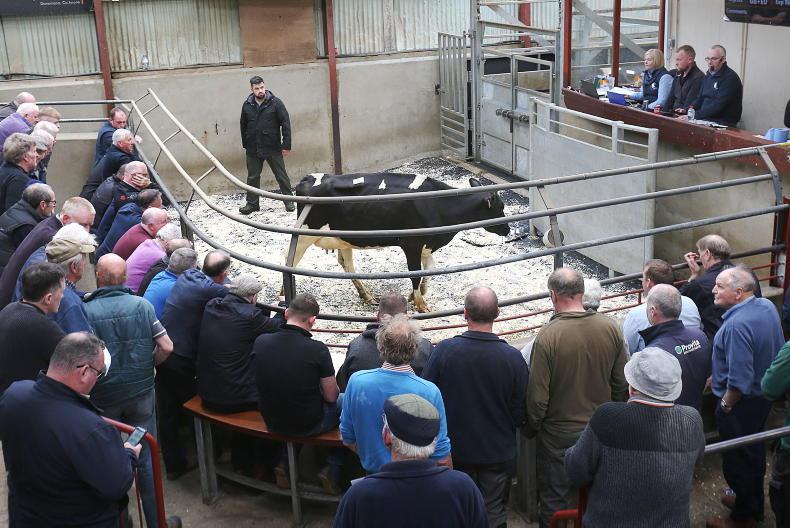
SHARING OPTIONS